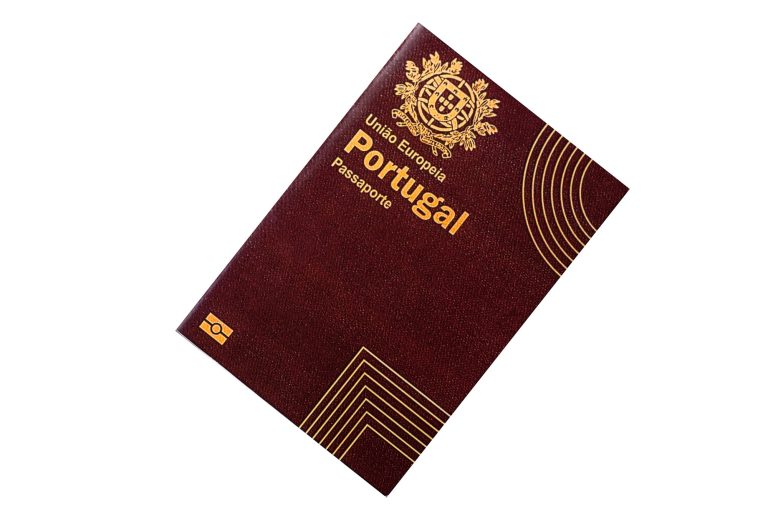Portugal’s inheritance system presents unique challenges and opportunities for foreign residents and property owners in 2025. The country operates a forced heirship system that reserves 50-66% of estates for close family members, but EU nationals can override these rules by choosing their home country’s law. With no traditional inheritance tax since 2004, Portugal instead levies a 10% stamp duty on inheritances to non-immediate family members, making it one of Europe’s more favorable jurisdictions for family wealth transfers. The recent closure of the Non-Habitual Resident (NHR) regime in March 2025 marks a significant shift in Portugal’s tax landscape for expats, though existing NHR holders retain their inheritance tax exemptions for the remainder of their 10-year period.

For the estimated 720,000 foreign residents in Portugal and countless international property owners, understanding the Portuguese succession system has become essential. The country’s membership in the EU brings both advantages through Brussels IV regulation and complexities in cross-border estate administration. Portuguese law mandates strict timelines—including a three-month deadline for tax declarations and six-month limit for stamp duty payment—with significant penalties for non-compliance. The typical inheritance process takes 12 months or longer for international estates, requiring navigation through notaries, registries, and tax authorities while managing translation requirements and jurisdictional conflicts.
Current legal framework shapes expat inheritance planning
Portuguese succession law underwent no major legislative changes in 2024-2025, maintaining stability in a system that fundamentally differs from common law approaches. The Civil Code articles 2024-2334 continue to govern inheritance, establishing mandatory heir rights that cannot be disinherited except in extreme circumstances proven in court. This forced heirship system, known as “legítima,” ensures that spouses and descendants receive two-thirds of an estate when both exist, or half when only one category of heir is present.
The practical impact varies significantly based on family composition. A married person with children can only freely dispose of one-third of their estate through a will, with the remaining two-thirds divided among spouse and children The spouse cannot receive less than one-quarter of the total estate, providing substantial protection against disinheritance. For those with only a spouse or only children, the reserved portion drops to 50%, allowing greater testamentary freedom. Parents and grandparents also qualify as forced heirs in the absence of descendants, though with reduced mandatory portions.
EU Succession Regulation 650/2012, known as Brussels IV, offers the most significant planning opportunity for EU nationals. By making an explicit choice in their will, individuals can elect their nationality’s law to govern their entire succession, effectively bypassing Portuguese forced heirship rules. This election must be made during lifetime and clearly stated in the will—heirs cannot make this choice after death. The regulation applies to all EU member states except Denmark, Ireland, and the former UK, creating a powerful tool for estate planning that respects individual autonomy while maintaining Portuguese tax obligations.
Tax landscape favors family transfers over complex planning
Portugal’s inheritance tax structure stands out for its simplicity and family-friendly approach. The 10% flat stamp duty rate applies uniformly to all non-exempt beneficiaries, with complete exemption for spouses, children, grandchildren, parents, and grandparents. This contrasts sharply with progressive inheritance tax systems in neighboring countries like Spain (7.65-87.6%) and France (5-60%), positioning Portugal as an attractive jurisdiction for family wealth preservation.
The tax applies to Portuguese-situs assets only, following a territorial principle that limits Portugal’s reach over foreign holdings. No minimum thresholds or progressive rates complicate calculations—the 10% rate applies to the full inherited value for non-exempt recipients. Property transfers incur an additional 0.8% stamp duty, bringing the total tax burden to 10.8% for real estate inherited by siblings, nieces, or unrelated beneficiaries. Payment deadlines are strict: heirs must declare the inheritance within three months and pay any due stamp duty within six months of death.
The NHR regime’s closure marks a significant transition. While new applications ended on March 31, 2025, existing NHR beneficiaries maintain their favorable tax treatment, including inheritance tax exemptions, for their full 10-year period. The replacement IFICI regime focuses on qualified professionals and researchers but lacks clarity on inheritance benefits, suggesting Portugal may be moving away from broad-based tax incentives toward targeted professional attraction.
Property transfers demand meticulous documentation
Real estate inheritance follows a structured process requiring interaction with multiple Portuguese authorities. The journey begins at the Civil Registry with death registration within 48 hours, followed by a cascade of documentary requirements. Heirs must obtain a certificate from the Instituto dos Registos e do Notariado (IRN) confirming whether a Portuguese will exists, then proceed to formalize their status through a “habilitação de herdeiros” (deed of heir qualification) at a notary office.
The property transfer itself demands comprehensive documentation: the original property deed, current land registry certificate, tax authority property document (caderneta predial), and proof of stamp duty payment. Foreign heirs face additional hurdles, requiring apostilled or legalized foreign documents with certified Portuguese translations. The Conservatória do Registo Predial must record the transfer to make it enforceable against third parties, with costs ranging from €20 for office filing to €15 for online registration.
Timeline management proves critical. While death registration occurs immediately, the full property transfer process typically extends beyond 12 months for international cases. Missing documents, translation delays, and cross-border verification can add months to the timeline. Non-resident heirs often benefit from executing a Portuguese power of attorney, allowing local representatives to handle procedures without repeated travel.These powers of attorney cost approximately €250 plus VAT in legal fees, €30 for apostille certification, and additional notary charges, but can save significant time and travel expenses.
Digital assets remain in legal limbo
Portugal lacks specific legislation governing digital inheritance, leaving cryptocurrency, online accounts, and digital assets under general succession rules. This regulatory gap creates practical challenges as traditional inheritance procedures struggle to accommodate assets protected by passwords, encryption, and platform-specific access controls. The 10% stamp duty technically applies to inherited cryptocurrency for non-exempt beneficiaries, with additional complexity in valuation at the time of death.
Recent tax changes have brought cryptocurrency into the Portuguese tax net, with gains on holdings under 365 days subject to 28% capital gains tax. Inherited crypto must be declared to tax authorities, though enforcement mechanisms remain unclear given the decentralized nature of many digital assets. The EU’s Markets in Crypto-Assets (MiCA) regulation provides some framework but doesn’t specifically address inheritance transfers, leaving executors to navigate platform policies and technical barriers.
Platform-specific policies often override Portuguese law in practice. Social media accounts, cloud storage, and digital subscriptions typically follow terms of service that may not recognize Portuguese inheritance rights. Careful pre-planning, including maintaining accessible records of digital assets and considering platform-specific legacy options, becomes essential for comprehensive estate planning.
Cross-border complexities multiply for international estates
International inheritance cases trigger multiple layers of complexity under Portuguese law. European UnionEuropean e-Justice The determination of habitual residence drives jurisdictional questions under Brussels IV, with Portuguese courts examining factors beyond mere address: duration of stay, social integration, economic ties, and family connections all influence the assessment. A retired British couple splitting time between the Algarve and Cotswolds might face genuine uncertainty about which country’s courts have jurisdiction over their estate.
The European Certificate of Succession (ECS) offers partial relief for EU-resident heirs, providing a uniform document valid across member states without additional legalization. Portuguese authorities issue and recognize the ECS, though property registration may still require a separate partition deed. e-JusticeELRA The certificate’s six-month validity period necessitates efficient planning to avoid renewal requirements during lengthy probate processes.
Double taxation treaties provide essential relief for international estates. Portugal maintains over 80 such agreements, generally following OECD model provisions that assign primary taxing rights based on residence while preserving source country rights for immovable property. Treaty benefits require careful documentation and may necessitate obtaining tax residence certificates or claiming treaty relief through specific procedures in each country.
Strategic planning opportunities for foreign residents
Successful inheritance planning for Portuguese expats requires balancing multiple objectives: tax efficiency, family protection, and practical administration. The Brussels IV election stands as the most powerful tool for EU nationals, allowing home country law to govern succession while maintaining Portuguese tax obligations. Making this election requires explicit statement in a will, cannot be done posthumously, and affects the entire estate rather than specific assets.
Life insurance emerges as a particularly attractive vehicle for Portuguese residents. Unit-linked policies combine investment flexibility with inheritance planning benefits, allowing direct transfer to beneficiaries outside the probate process. Luxembourg insurance companies have developed sophisticated products tailored to Portuguese residents, offering professional management and potential tax advantages. Unlike trusts, which Portugal doesn’t recognize and taxes punitively at 28% on distributions, properly structured insurance provides a compliant wrapper for wealth transfer.
Lifetime gifting strategies merit consideration given the identical 10% stamp duty rate for gifts and inheritances to non-exempt recipients. Strategic timing of transfers, particularly for appreciating assets, can optimize overall tax burdens while providing certainty of execution. The complete exemption for transfers between spouses, parents, and children creates opportunities for staged wealth transfers that reduce estate complexity.
CPLP citizens enjoy streamlined procedures
Citizens of Portuguese-speaking nations benefit from specific advantages in immigration and residence procedures that indirectly facilitate inheritance planning. Brazilian and Timorese citizens can enter Portugal as tourists and apply for residence permits after arrival, with processing in just 72 hours for a €15 fee. Other CPLP nationals—from Angola, Mozambique, Cape Verde, Guinea-Bissau, São Tomé and Príncipe, and Equatorial Guinea—must obtain visas before arrival but enjoy simplified documentation requirements and expedited processing. European Commission
The pathway to Portuguese nationality requires only five years of residence for CPLP citizens compared to ten years for others, with dual citizenship permitted. This accelerated timeline creates inheritance planning opportunities through potential Brussels IV elections and simplified administration. Social security totalization agreements among CPLP nations ensure pension rights transfer smoothly, affecting survivor benefits and inheritance calculations.
These advantages extend beyond immigration to practical inheritance administration. Consular services in CPLP countries often provide specialized assistance with document authentication and translation, reducing administrative barriers. The shared legal heritage among former Portuguese territories can simplify recognition of documents and legal concepts, though each country maintains distinct succession laws requiring careful analysis.
Practical costs shape estate administration decisions
Understanding the true cost of Portuguese inheritance administration helps families plan effectively. Total expenses typically range from 3-5% of estate value, combining mandatory fees with professional services. Notary fees for a deed of acceptance of inheritance start at €600, with property transfer deeds adding €500-1,000 depending on complexity. Land registry updates cost €225 plus VAT for basic registration, increasing with multiple properties.
Legal representation becomes almost essential for international estates. Portuguese lawyers typically charge 1-2% of estate value with minimum fees of €3,000-5,000. Cross-border coordination through international firms pushes costs higher, particularly when managing assets in multiple jurisdictions. Translation and legalization expenses mount quickly—certified translations run €50-150 per document, with complex wills costing €200-500 to translate properly.
The timeline affects both direct costs and opportunity costs. While simple domestic estates might conclude within six months, international cases routinely extend beyond a year. During this period, assets remain frozen, property maintenance continues, and currency fluctuations can affect values. Professional executors or administrators may charge ongoing fees, while missed deadlines trigger penalties and daily interest charges that compound rapidly.
Essential timeline management prevents costly penalties
Portuguese inheritance law imposes rigid deadlines that catch many foreign heirs unprepared. The 48-hour death registration requirement rarely poses problems, but the three-month deadline for tax declaration proves challenging for international estates. This declaration must include all Portuguese assets regardless of whether tax is due, with penalties and daily interest accruing for late filing.
The six-month stamp duty payment deadline creates additional pressure. While installment payments up to ten months are possible, interest accrues on unpaid amounts. Property transfers cannot proceed until taxes are paid, creating potential conflicts when multiple heirs disagree on asset disposition or lack liquidity for tax payments.
Proactive timeline management requires immediate action upon death. Engaging Portuguese counsel within days, not weeks, allows proper deadline tracking and avoiding procedural errors. Obtaining powers of attorney for non-resident heirs before urgent needs arise prevents travel delays. Maintaining organized documentation, including pre-authenticated translations of key documents, can save weeks in the process.
Future outlook suggests stability with incremental change
Portuguese inheritance law shows remarkable stability, with no major reforms on the immediate horizon despite ongoing EU harmonization discussions. The Portuguese Bar Association’s recommendations for inventory process improvements await implementation, potentially offering more flexibility in choosing between court and notarial proceedings. These changes would particularly benefit cases involving minors or incapacitated persons, enhancing protection while streamlining procedures.
The digital asset regulatory gap will likely narrow as cryptocurrency adoption mainstream and platform policies evolve. Portugal’s progressive approach to crypto taxation suggests eventual comprehensive digital inheritance frameworks, though specific timeline remains uncertain. The IFICI regime replacing NHR may clarify inheritance provisions as the program develops, potentially offering targeted benefits for qualified professionals.
For expats and foreign property owners, the current system offers predictability despite complexity. The combination of Brussels IV flexibility, favorable family exemptions, and professional service availability creates manageable pathways for successful inheritance planning. Regular review of estate plans, particularly as Portugal refines its attraction strategies for foreign residents and retirees, ensures continued optimization within this stable but evolving framework.







